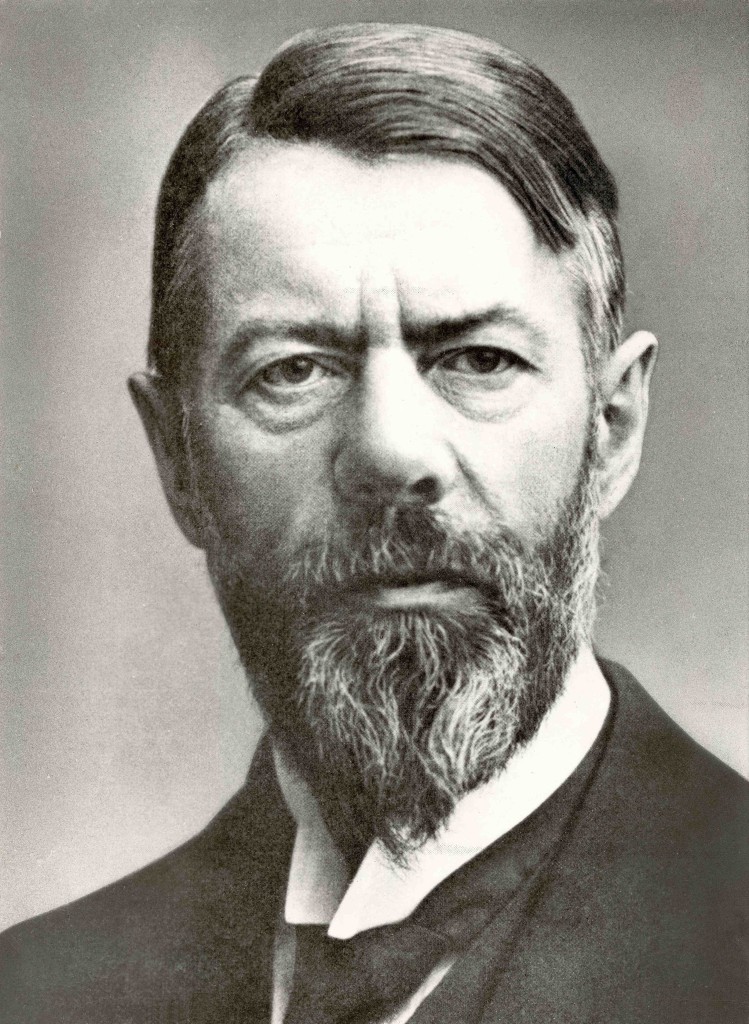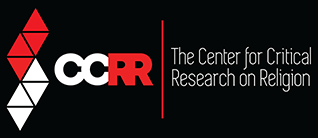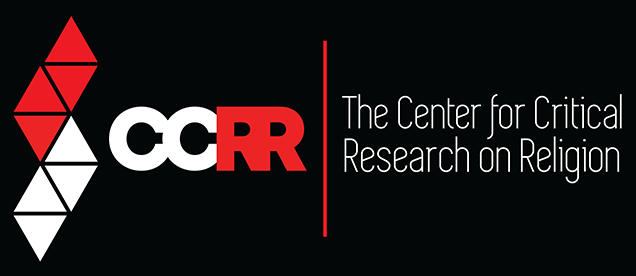Max Weber

“But it is, of course, not my aim to substitute for a one-sided materialistic an equally one-sided spiritualistic causal interpretation of culture and history. Each is equally possible, but each, if it does not serve as the preparation, but as the conclusion of an investigation, accomplishes equally little in the interest of historical truth.”
Primary Literature
Weber, Max. 1930. The Protestant Ethic and the Spirit of Capitalism. translated by Talcott Parsons. London: Routledge.
_____. 1946. From Max Weber: Essays in Sociology. edited by H.H. Gerth and C. Wright Mills. New York: Oxford Univ. Press.
_____. 1951. The Religion of China. New York: Free Press.
_____. 1952. Ancient Judaism. New York: Free Press.
_____. 1963. The Sociology of Religion. Boston: Beacon.
_____. 1978. Economy and Society. 2 Vols. edited by Guenther Roth and Claus Wittich. Berkeley: University of California Press.
_____. 1988. Gesammelte Aufsätze zur Religionssoziologie. 3 Bände. Tübingen: J.C.B. Mohr.
_____. 1996. The Religion of India: The Sociology of Hinduism and Buddhism. New Delhi: Munshiram Manoharlal.
_____. 2002. The Protestant Ethic and the Spirit of Capitalism. translated by Stephen Kalberg. Los Angeles: Roxbury.
Secondary Literature
Bendix, Reinhard. 1960. Max Weber: An Intellectual Portrait. Berkeley: University of California Press.
Kalberg, Stephen. 1980. “Max Weber’s Types of Rationality: Cornerstones for the Analysis of Rationalization Processes of History.” American Journal of Sociology 85:1145-1179.
_____. 1990. “The Rationalization of Action in Max Weber’s Sociology of Religion,” Sociological Theory 8:58-84.
Pratap Bhanu. 2001. “The Ethical Irrationality of the World: Weber and Hindu Ethics.” Critical Horizons 2:203-225.
Mommsen, Wolfgang. 1974. The Age of Bureaucracy: Perspectives on the Political Sociology of Max Weber. New York: Haprer & Row.
Nelson, Benjamin. 1973. “Weber’s Protestant Ethic: Its Origins, Wanderings, and Foreseeable Futures.” Beyond The Classics: Essays in the Scientific Study of Religion, edited by Charles Glock and Phillip Hammond, 71-130. New York: Harper and Row.
Rodinson, Maxime. 1974. Islam and Capitalism. Harmondsworth: Penguin.
Schluchter, Wolfgang. 1976. “Die Paradoxie der Rationalisierung” Zeitschrift für Soziologie 5:256-284.
_____ . 1981. The Rise of Western Rationalism: Max Weber’s Developmental History. Berkeley: University of California Press.
_____ . 1983. Max Webers Studieüber Konfuzianismus und Taoismus:Interpretation und Kritik, edited by Wolfgang Schluther. Frankfurt: Suhrkamp.
_____. 1984. Max Webers Studie über Hinduismus und Buddhismus,
edited by Wolfgang Schluchter. Frankfurt: Suhrkamp.
_____. 1988. Religion und Lebensführung. 2 Bande. Studien zu Max Weber
Kultur und Wertheorie. Frankfurt: Suhrkamp.
_____. 1988. Max Webers Sicht des Okzidentalen Christentums: Interpretation und Kritik, edited by Wolfgang Schluchter, 112-128. Frankfurt: Suhrkamp.
_____. 1989. Rationalism, Religion, and Domination: A Weberian Perspective. Berkeley: University of California Press.
_____. 1999. Max Weber and Islam, edited by Toby Huff and Wolfgang Schluchter. New Brunswick: Transaction.
Sica, Alan. 1988. Weber, Irrationality and Social Order. Berkeley: University
of California Press.
Springer de Freitas, Renan. 2007. “Sociology of Religion as a Recapitulation of Christian Replacement Theology:Max Weber and the Prophetic Roots of Western Rationalism.” Revista Brasileira de Ciêncas Sociais 22(65):109-125 (2008 translation, vol. 4. pp. 1-31).
Tenbruck, Friedrich. 1980. “The Problem of thematic unity in the works of Max Weber.” British Journal of Sociology 31:316-351.
Turner, Bryan S. 1974. Weber and Islam: A Critical Study. London: Routledge & Kegan Paul.

